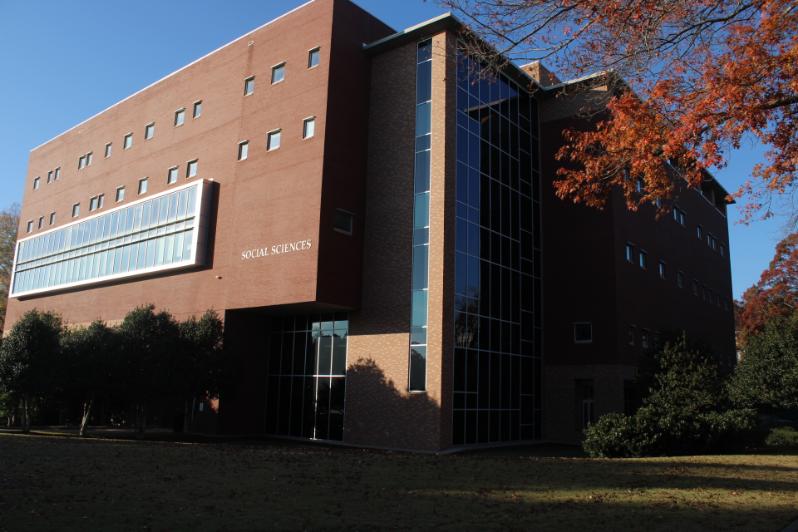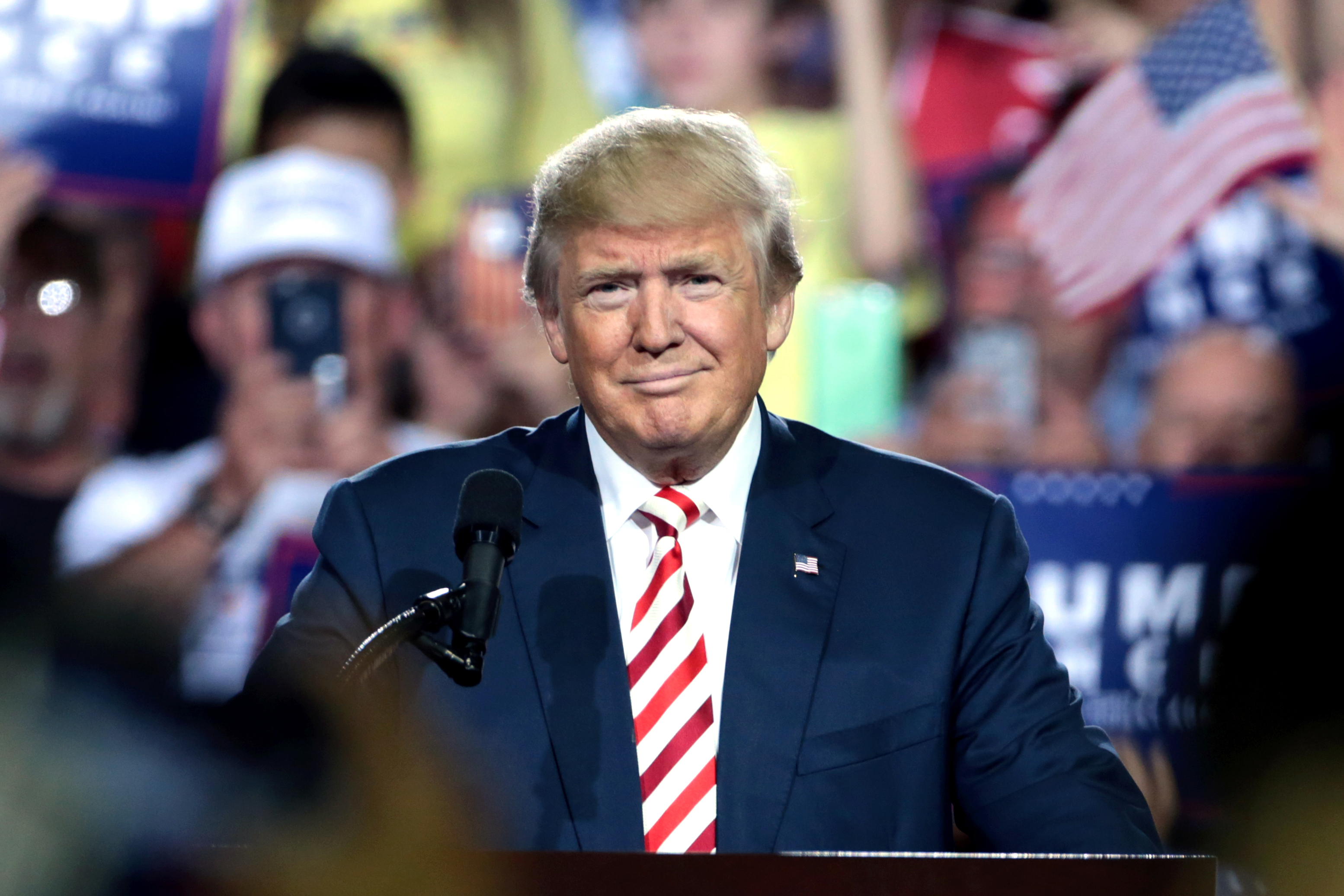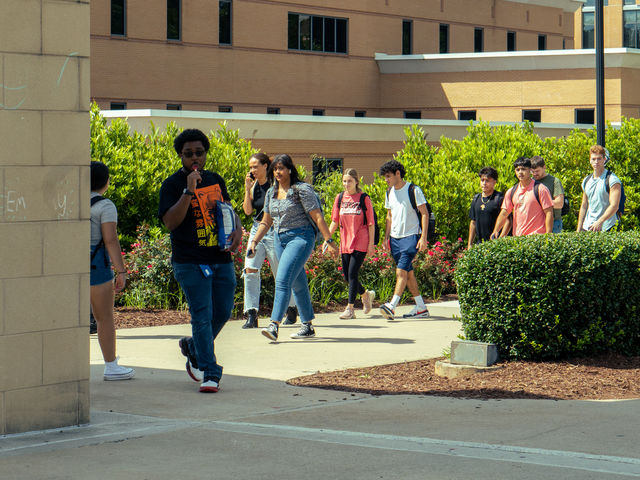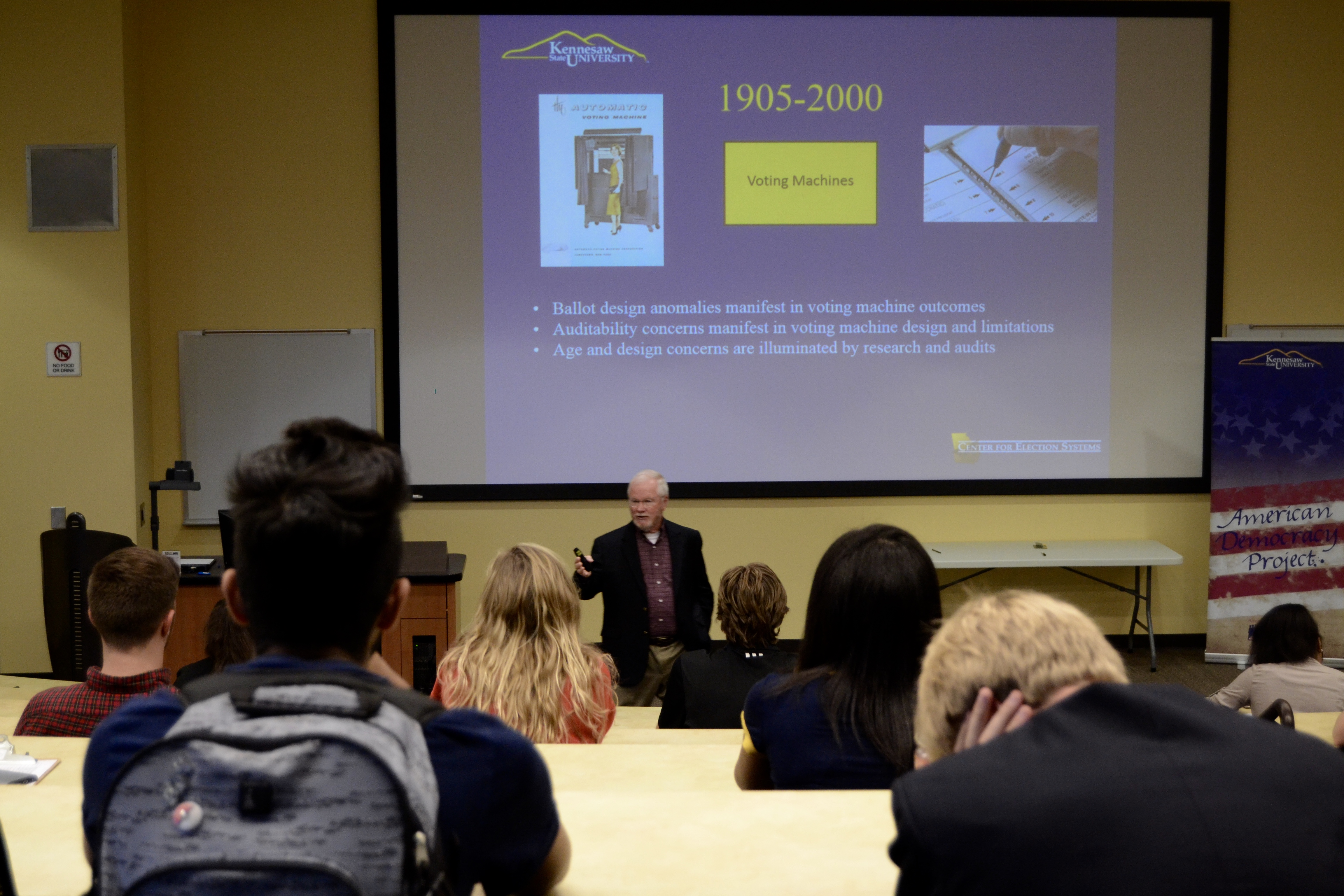Donald Trump returns to the White House, making history with a non-consecutive term. Here’s how KSU’s political experts view the impact of his second presidency.
Donald Trump’s return to the White House has sparked debate and polarization regarding his policies and leadership capabilities. At Kennesaw State, this theorization of possible political actions President-elect Donald Trump may take was no different with Professors who teach at our institution.
“I think, especially concerning Ukraine, that’s the most obvious example where both when Trump was president in his first term and then over the last four years, he has been less supportive of US military assistance…I think there’s a lot of expectation that he might not be as willing to provide that military aid,” said Senior Political Science and International Relations Professor, Megan Hauser.
Hauser continued, this time keying in on how a second Trump administration may handle Israel, saying, “The Biden administration has been very supportive of Israel and I expect the Trump administration to be supportive too. I know that there’s been speculation that it seems like Prime Minister Netanyahu…has preferred Trump to Biden.”
“There’s been some question of how [Trump’s new administration] will impact Israel’s behavior in Gaza and Lebanon now. So that might be an area where we see maybe the Israeli government feeling more like they have more latitude, potentially,” she said.
Hauser finished by commenting on Trump’s overall foreign policy vision, the impact it may have on American power, and America’s rivals.
“Speculation could be that [America reducing its role in international affairs] might create an opportunity for other powers to try to enhance their global profiles.”
She continued, referencing how China may respond to a shakeup in American foreign policy saying, “China’s definitely been trying to enhance their involvement in many different parts of international politics and so I think if the US retreats a little bit more inward, China might see that as an opportunity to enhance and expand what they’ve already been working on.”

Professor of Political Science Kerwin Swint, described Trump’s return as a “course correction,” citing programs like mass deportation and the proposed Department of Government Efficiency, which is to be headed by Elon Musk and Vivek Ramaswamy. “It’s going to be wild just to see what happens,” he said.
He spoke on the gap between the Trump and Biden administration’s approach to foreign affairs.
“The people helping him run the government see the world very differently from the way that [Secretary of State] Anthony Blinken sees the world. The foreign policy would be very, very different towards Iran, for example, really everywhere. Israel, China, Russia, the whole thing.”
Swint detailed how he believed Trump views himself in foreign relations, and what he’ll attempt in his second term.
“[Trump] tends to be a very hands-on player in foreign policy. He’ll go to visit people. He’ll talk to people, he’ll try to shake things up…Trump sees himself as a peacemaker,” he said. “He is going to attempt to build on the Abraham Accords, which is what he sees as his crowning achievement in his first term and foreign policy.”
“I think that he’s going to try and end the Ukraine War,” he added.
One of Trump’s standout campaign promises was his pursuit of mass deportations. Swint broke down how he thought this policy might play out, saying, “I think they’re probably going to focus on the criminal element because that would be the easiest to explain, the easiest to perform, most likely. You know where those people are. You know what kind of [legal status] they have.”
While he doubted that the full scale of Trump’s promises would be realized, he noted the possibility that “two or three million [undocumented immigrants] could be deported.”
He explored the issues of legal authority and repatriation of undocumented immigrants, saying, “We’ll see how complicated the logistics are of that, the legality of that. Are these countries going to take their people back? Venezuela’s not going to.”
On energy policy, Swint said, “We know he’s going to, as he says, ‘Drill baby, Drill.’ because the way he sees the economy, you have to get back to petroleum-based energy to get prices down because energy drives the prices of so many things. So the petroleum [production] is going to happen again. It’s going to start flowing again.
Finally, Swint remarked on the future of major legislation passed during President Biden’s term.
“I think [the Trump administration] is interested in reversing much of the Biden agenda. They see it as inflationary. They see it as misplaced. You can’t undo legislation, you know, at the drop of a hat. There are budgets involved,” he said, emphasizing the challenges Trump may have reversing Biden-backed legislation.

“The bottom line is it really depends on how much the Trump administration needs cooperation from Congress. If they really want to go it alone, then I think that the second Trump administration could look pretty different than the first one,” said Associate Professor of Political Science Benjamin Taylor.
While noting the key Republican figures in Congress during Trump’s first term, Taylor continued, “[The first Trump administration] really relied on congressional leadership to get what they wanted done. You had Paul Ryan, as speaker of the House, Mitch McConnell the Senate majority leader and they really directed the policy operation of that first administration.”
Taylor continued, “Then you had divided government after the 2018 midterms and Trump was really beholden in a lot of ways to Speaker Pelosi at the time.”
On Trump’s potential relationship with the Senate, Taylor spoke to both the potential triumphs and struggles.
“It’s possible that he could have a couple of defectors like Susan Collins and Lisa Murkowski specifically, and still get a lot done, but if the Senate wants to make life difficult, then it’s possible that the Trump administration gets little done that is long lasting.”
He then went on to comment on this situation in the House Trump will deal with.
“The House has a couple of problems. Republicans in the House don’t get along with each other. So it’s hard to know exactly how lockstep they’ll be.” He continued, now emphasizing the ideological advantage the House may provide Trump, saying “…but to the extent that anybody is in on ‘Trumpism,’ it’s the Republicans in the House.”
Taylor was able to construct a historical parallel between the current Trump platform and that of the Republican party of the early 20th century, coining it a party “revolution.”
He went on to describe the similarities saying, “It’s basically just an isolationist foreign policy, so America keeps to itself, we stay out of foreign involvement. We’re not really involved in the affairs of other parts of the world. Economically, you use tariffs and protectionist policies.”
Taylor then segwayed into his thoughts on Trump’s proposed tariff package.
“The economic reality of tariffs is that it is effectively an inflationary practice because it makes everything more expensive and that has real down-the-line economic consequences, and depending on your perspective, those can be good or bad.”
He spoke about what the political effects of possible tariff-based inflation would be saying, “Generally speaking…people are not excited about inflation. That’s one of the reasons why Trump won. So any policy perspective that’s gonna make that worse is gonna be troublesome politically down the line and tariffs tend to do that generally.”
On President-elect Trump’s idea of potentially granting immunity to police officers, Taylor had this to say.
“It would create a lot more problems than it would solve.” He continued, “It’s likely to cause a lot of political trouble down the line. If you think having a lot of negative press is political trouble.”
He went on to mention that such a policy would probably face serious opposition from Democrats and Republicans alike, finishing with, “I think it’d be politically difficult to get done.”
Taylor finished with a discussion on Trump’s threats to abolish the Department of Education.
“Donald Trump is just the latest in a long line of Republican presidents who have said they want to either significantly curtail or outright get rid of the Department of Education altogether, and none of them have done it as of yet, because the rhetoric that you use in a campaign is usually pretty different than a governing reality,” he began.
“If the Department of Education is dispensed with the policy and funding responsibilities that it has do not go away. They will shift to other parts of the government.”
He then spoke on the origins of the department’s existence and what could happen if it’s done away with.
“The fact of the matter is that every government institution that we have, every government policy that we have exists because of a response to a collective action problem that reached critical mass to the extent that elected officials in Washington said we’ve got to do something about this.”
A variety of issues were discussed with Professors Hauser, Swint, and Taylor, and their contributions will hopefully serve as a base of balanced and healthy discussion for the student body of Kennesaw State.




